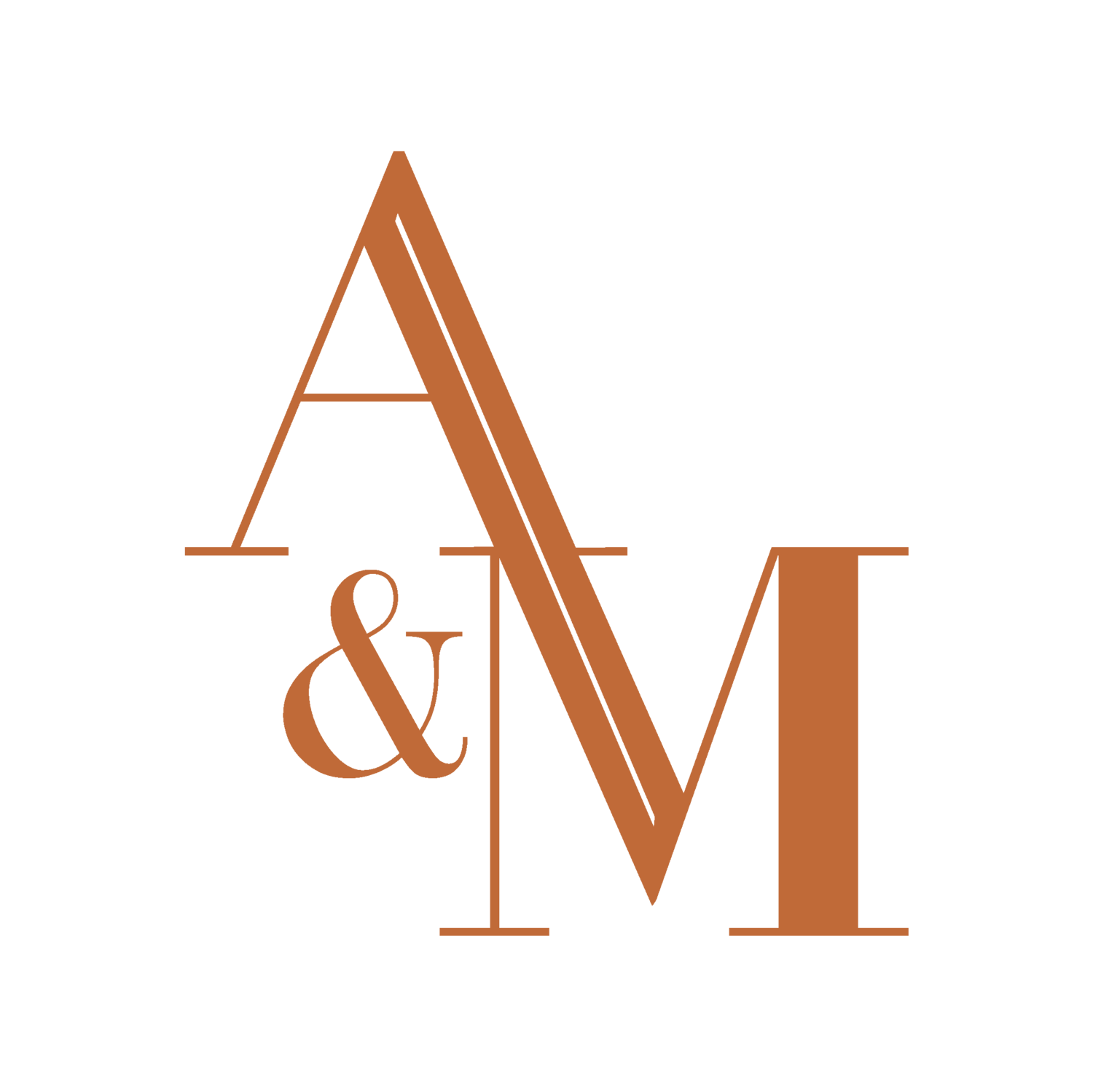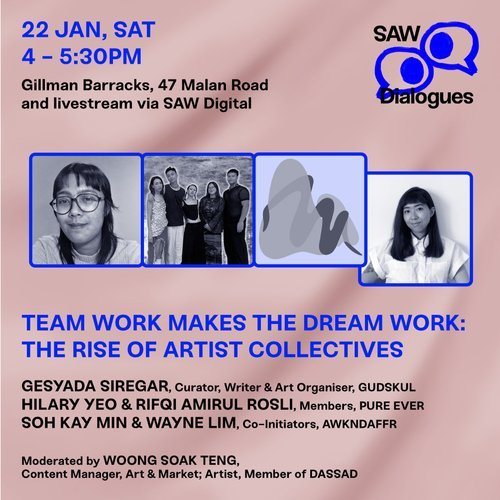SAW Dialogues 2022 | Team Work Makes the Dream Work: The Rise of Artist Collectives
Gesyada Siregar, Hilary Yeo, Rifqi Amirul Rosli, Soh Kay Min, Wayne Lim, Woong Soak Teng
By Sara Lau
Screenshot of talk. From left to right: Geysada Siregar, Curator, Writer & Art Organiser, GUDSKUL, Rifqi Amirul Rosli & Hilary Yeo, Members, PURE EVER, Soh Kay Min & Wayne Lim, Co-initiators, AWKNDAFFR, Woong Soak Teng, Content Manager, Art & Market, Artist, and a member of DASSAD.
Key points:
A collective can have many guises, but is grounded in ideas of exchange, flexibility and growth.
The value of a collective is not predicated on its artistic or material output.
Marketability and longevity are secondary to priorities such as community care and mutual support.
‘Team Work Makes the Dream Work: The Rise of Artist Collectives’ took place on 22 January 2022, 4pm to 5:30pm as part of SAW Dialogues 2022. This introspective discussion tackled the concept of the art collective, the possibilities it affords and its position within the art world and the society at large. The panel featured Gesyada Siregar, Curator, Writer and Art Organiser, GUDSKUL, Hilary Yeo and Rifqi Amirul Rosli, who are two of five members of Pure Ever (which include in addition Zhiyi Cao, Raigo Law and Elsa Wong), and Soh Kay Min and Wayne Lim, who are co-initiators of AWKNDAFFR. This session was moderated by Woong Soak Teng, Content Manager, A&M, Artist, and a member of DASSAD.
Here are the takeaways:
A collective can have many guises, but is grounded in ideas of exchange, flexibility and growth. Hilary spoke about her conception of what a collective shifting away from sameness, where everyone shares and thinks similarly, towards one of diversity. She also cited potential disagreements within the collective as necessary sparks for its growth. Similarly, Gesyada and Kay Min stated how working collectively is possibly the most inefficient way to work, but both see this flexibility as a feature rather than a bug, and that the resulting negotiations and exchanges are valuable to their work and practice. Kay Min added that this mode of working also acts as a unique form of resistance against prevalent ideas of efficiency and productivity. Rifqi and Hilary explained that Pure Ever started organically with five members and that they see themselves as an alliance rather than a fixed network, often connecting with other individuals in their personal lives. They both find value in locating solidarity through the collective, as well as in the freedom to access resources and exchange ideas easily.
The value of a collective is not predicated on its artistic or material output. Soak Teng posed the question of locating the ‘art’ in collective practice based on Gesyada’s essay in FIXER 2021, ‘As If Looking at the Weaving of Ampang: In Search of Art within Art Collective Practice in Indonesia.’ Gesyada articulated that art collectives in Indonesia often clashed with authority and they have to navigate these tensions and push through daily life. She sees this labour as art itself, as opposed to any tangible artworks or exhibitions that emerge from the collective. Kay Min extended this line of thought later on, elaborating on how she herself questioned if working collectively requires an artistic output like a painting or any work that has a fixed form. Wayne continued by identifying fluidity and malleability in the working process as key to A Weekend Affair’s practice. A sentiment consistently shared throughout the discussion was that collective work is intentionally unaligned with capitalist notions of value based on people’s productivity, which thus allows for more space to address other concerns.
Marketability and longevity are secondary to priorities such as community care and mutual support. Hilary revealed that the collective has only recently thought about how to make money with their work. The market was not a priority as they have leaned on the many institutions that provided opportunities during the pandemic. She said that concerns of the market come secondary to what she believes art collectives can provide, particularly its innate structure for survival, beauty and healing. Rifqi added that there are now other ways to generate income that does not rely on artistic output, such as crowd-funding and sale of merchandise. Gesyada discussed how newer collectives in Indonesia are deliberately anti-capitalist and thus not focused on market concerns, instead creating spaces where one can exist without thinking of productivity or producing work. However, longevity is still important to her, and she cited endurance and a solution-oriented approach as key factors for sustainability. Towards the end of the conversation, she also candidly said that she was aware that choosing to work in the arts and in such collectives meant that she would never be rich, but that she’ll always be rich in community and in friends. Wayne and Kaymin of A Weekend Affair spoke about the name originating from their weekend work outside of their full-time day jobs, and thus did not have much to share about concerns of the art market. Consequently, the members of A Weekend Affair and Pure Ever stated that longevity was not a priority either, with the former explaining how working collectively is not limited to working as a collective, and the latter viewing longevity through the building of a network rather than consistent work together.
All in all, the dialogue showcased different ways of thinking about collective work and how they arose in contrast to a productivity-driven mindset. The diverse perspectives also provided opportunities to consider new ways of thinking about art-making, collectivity, and artistic networks.
Watch the full recording of ‘SAW Dialogues 2022 | Team Work Makes the Dream Work: The Rise of Artist Collectives’ here:
You can also listen to it as a podcast here:
About the writer:
Sara Lau is a writer with overlapping interests in visual and performing arts, ethnographic narratives and cultural histories. She enjoys writing in all its permutations, particularly poetry and creative non-fiction. In 2019, she graduated from the National University of Singapore with a degree in Sociology and a second major in Southeast Asian studies. By day, she works as a content marketing executive















